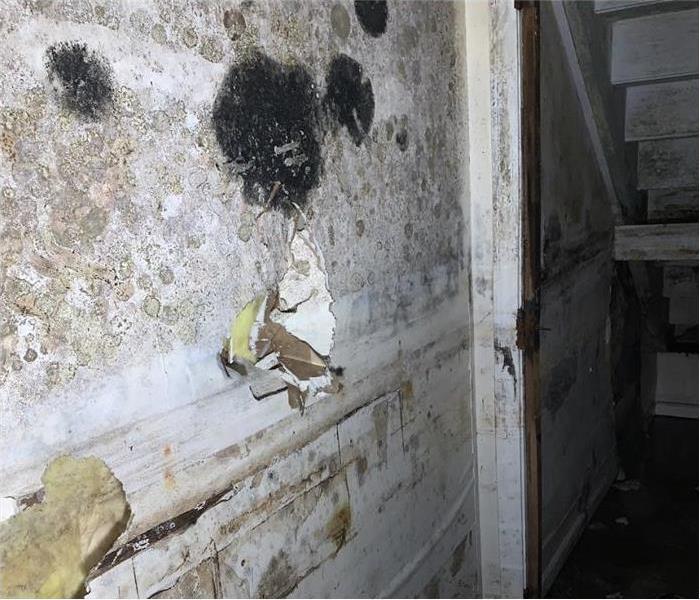3 Things To Know About Black Mold
11/29/2019 (Permalink)
3 Things To Know About Black Mold
If you’re facing a potential mold cleanup in your, Harrisonville, MO, home, you may have some concern about black mold. Fortunately, a local mold remediation service can answer your questions. Here are three things to understand about this type of mold and what makes it different from many other molds that can be found in the home.
1. What It Is
All molds are fungi. This means that they grow by secreting enzymes into the area around them and then absorbing the resulting nutrients. The fungi then generates spores which will spread until a full mold colony is formed. They generally prefer humid and dim conditions, and can grow anywhere there's damp organic material. Mold can range in color from pale grey or green to black, but not all dark colored molds are black molds
2. How It’s Different
There are a few differences between black mold and other kinds that may be found in the home. The first is that not all molds release mycotoxins which creates the toxicity that this type of mold is known for. This type of mold also required wet material to grow and must have access to such for 72 hours minimum, followed by continued moisture. It most often grows after major water damage or flooding which is part of why it’s important to repair water damage as soon as possible.
3. Who To Call
If you have any kind of mold in your home it’s best to contact a mold remediation service. These professionals can perform tests which may then tell you the exact type of mold that’s in your home. From there the service can make plans to begin the mold removal process. These professionals may also be able to help with water damage problems.
Just because a mold is black in color does not mean it’s black mold. It’s important to let your remediation professional determine what type of mold you do have, and to take the steps they recommend for remediation.



 24/7 Emergency Service
24/7 Emergency Service
